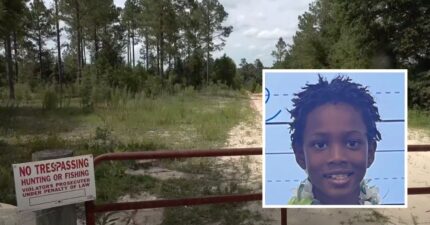For the first time in Brazil’s history, its census includes a question counting members of the Quilombo community, a monumental change that can have long-lasting impacts says University of South Florida Associate Professor of Sociology, Elizabeth Hordge-Freeman, Ph.D. “It changes the narrative, it changes people’s sense of Blackness in Brazil,” Hordge-Freeman added.
There are 3,495 Quilombo communities in Brazil, according to government data, amounting to 1.1 million people. Quilombo was the name given to rural communities established by those who escaped slavery before Brazil officially abolished slavery in 1888.
The National Coordination for the Articulation of Rural Black Quilombola Communities (CONAQ) and the Brazilian Institute of Geography and Statistics (IBGE) worked together since 2018 to get the quilombo community included on this year’s census. CONAQ reports, “The states with the highest number of quilombola people counted are Bahia with 116,437 quilombolas, Maranhão with 77,683 and Pará with 42,439. These numbers correspond to 61.15% of the total number presented in the first partial balance sheet of the 2022 Demographic Census, presented by IBGE on August 30th.”
“It unearths this history of enslavement, it forces folks in the country to recognize the ongoing impact of this history of slavery in the contemporary lives of Black Brazilians,” Hordge-Freeman said.
The census change will help improve the lives of the Quilombo community by giving them more access to resources where they are desperately needed.
“By being able to recognized them as a community, they not only have access to land rights, but this also means the government should be much more proactive in building some of the resources and infrastructures and the educational facilities,” Hordge-Freeman said.
Despite the positive impact added Quilombo representation means for impacted communities, including other Black communities within Brazil, Hordge-Freeman cautions against expecting a drastic turnaround in treatment due decades-worth of systemic racism in Brazil.
She says although the census change is a step in the right direction and more people of African descent are aspiring to enter political office, improving the lives of Black Brazilians must remain at the heart of the issues and policies sought after.
Brazil, like many other Latin American countries has a history of trying to lessen African influence among its people despite “nearly 56% of Brazilians, or roughly 119 million people say they’re of African descent according to the Brazilian Institute of Geography and Statistics,” as National Geographic reported.
Harvard University professor Alehandro De La Fuente told Atlanta Black Star about a third of the population in Latin America was African, a legacy of the trans-Atlantic slave trade.
Brazil abolished slavery in 1888, one of the last nations to do so, but even after slavery was abolished its Black inhabitants faced other threats largely from political leaders. Explicit racist policies were enacted to whiten the population by implementing immigration quotas which meant limiting people of African descent into the country meanwhile expanding access to people from European countries.
“They sought to erase the Afro-centric descendant people’s heritage and essentially whiten the population with European immigrants in the late nineteenth century and in the early twentieth century,” Yesenia Barragan, Latin American history professor at Rutgers University, told Atlanta Black Star.
“We’re talking about this at the global level, raises visibility of Black Brazilians and the plight they’re facing at the global level. Time will tell how this will translate into policy,” said Hordge-Freeman on the long-term impact including the Quilombo community can have by boosting Black visibility in society.


